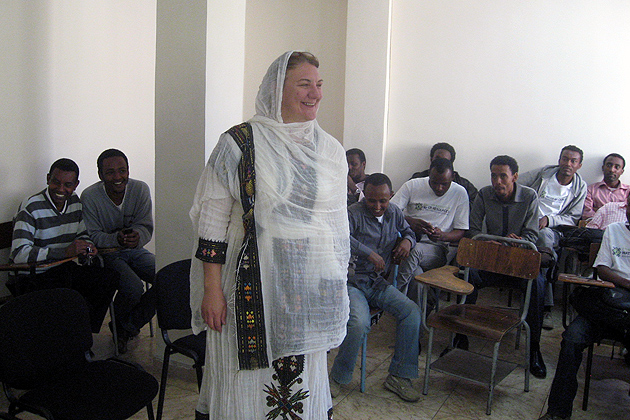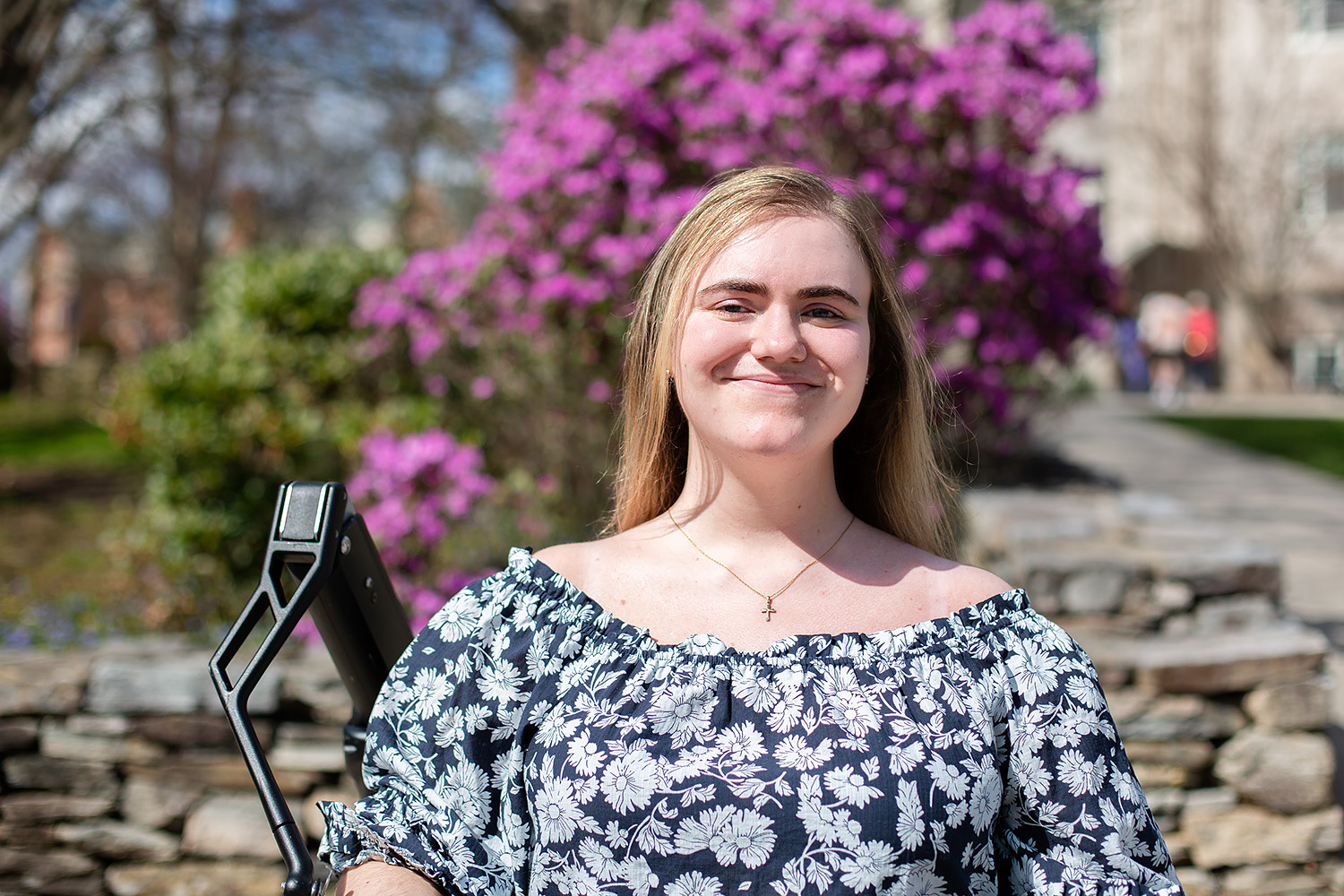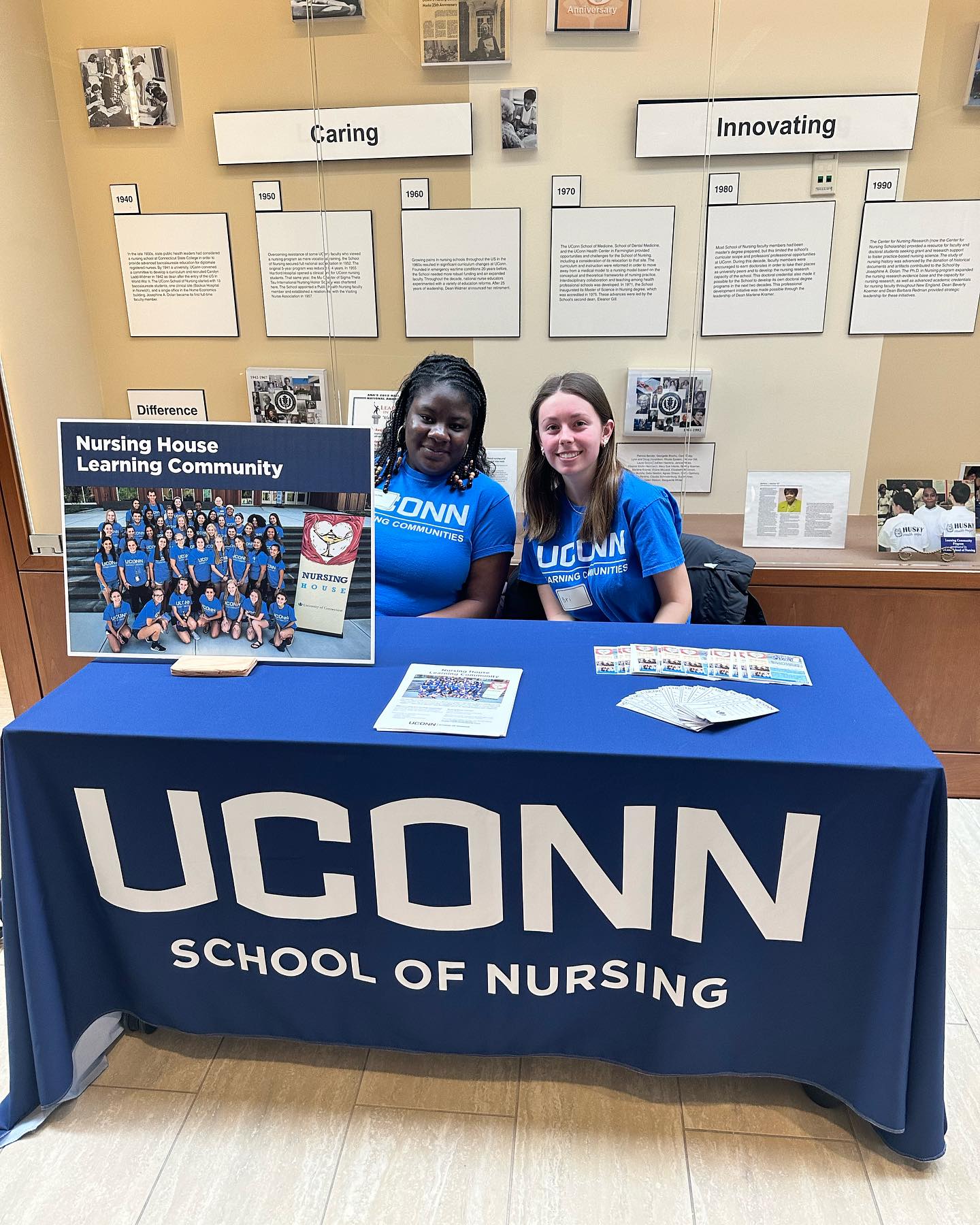When Carol Atkinson-Palombo was a Latin American debt strategist for investment banks in London and New York, her job of advising traders about where to move money depended on the fluidity of global capital.
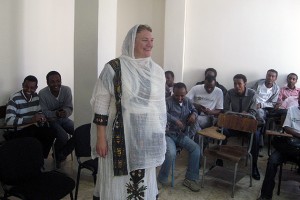
These days, as an assistant professor of geography, she focuses on fluidity of another kind – water – and its scarcity in some parts of the world. Developing a water supply involves more than science and engineering, she has found. Cultural patterns and gender issues also must be navigated.
Last winter she taught a short course on “Water and Sustainability” in Ethiopia, a country where water is in short supply and sustainable water projects are desperately needed, particularly in rural areas.
The course was one of the first at the new Ethiopian Institute for Water Resources, a partnership led by Addis Ababa University, the Ethiopian Ministry of Education, and UConn, with funding from the US Agency for International Development.
She worked with the first group of water resource engineering and management students at the institute, which opened a year ago in Addis-Ababa. Her class had 30 engineering graduate students, including the only four women students at the institute.
Gender is a significant concern when you are talking about water in rural areas of Ethiopia, notes Atkinson-Palombo, because women are often the water gatherers. Any system that is sustainable must meet their needs.
Evidence is emerging that up to eighty percent of water and sanitation projects in developing countries fail because women are not consulted about their design, she says.
“It’s optimal to have the community get involved with the project,” so that the impact of initiatives on the family structure and household dynamics is considered. “It’s quite humbling, really.”
Her career on Wall Street led Atkinson-Palombo to suspect that failure to consider context, such as cultural issues, can lead to failure in international development. That inspired her to pursue a new career in geography where she could examine place-based differences.
The low percentage of women who pursue higher education in Ethiopia, much less become
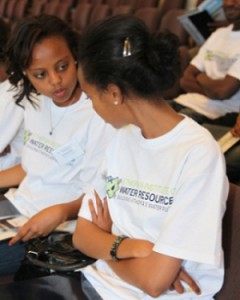
engineers, makes it harder to involve women in the design of projects. In her course at the water institute, she approached the topic carefully.
“Our goal is not to make all the engineers specialists in gender….but at least we want them to ask the question, ‘in what ways do I need to factor gender into this project?’” she adds.
“We’re dealing with a country where there is a lot of early marriage – 12 and 13 year-olds.” Women often drop out of secondary school, sometimes out of modesty, since many schools have primitive, open toilet facilities. Cultural practices do not encourage women to get an education. There is only one female full professor in the country.
The U.S. Ambassador to Ethiopia, Donald Booth, recognized the problem in his remarks at the institute’s inauguration in February. He called it “critical” to the success of U.S.-Africa initiatives that they offer opportunities for women to succeed in higher education.
Atkinson-Palombo had her students write personal reflections on what life was like in their own households and do literature searches on gender and water in their area. They would then talk to the class about how it might affect their own engineering designs.
Some of the older male students from rural areas shifted in their seats and “were really uncomfortable,” she says. Women in Ethiopia are socialized to let men speak, and one of her female students would not talk in class. Atkinson-Palombo let her write her observations, and she turned out to be one of the best writers in the class.
“We finally got her up in front of the class on the last day,” she says.
